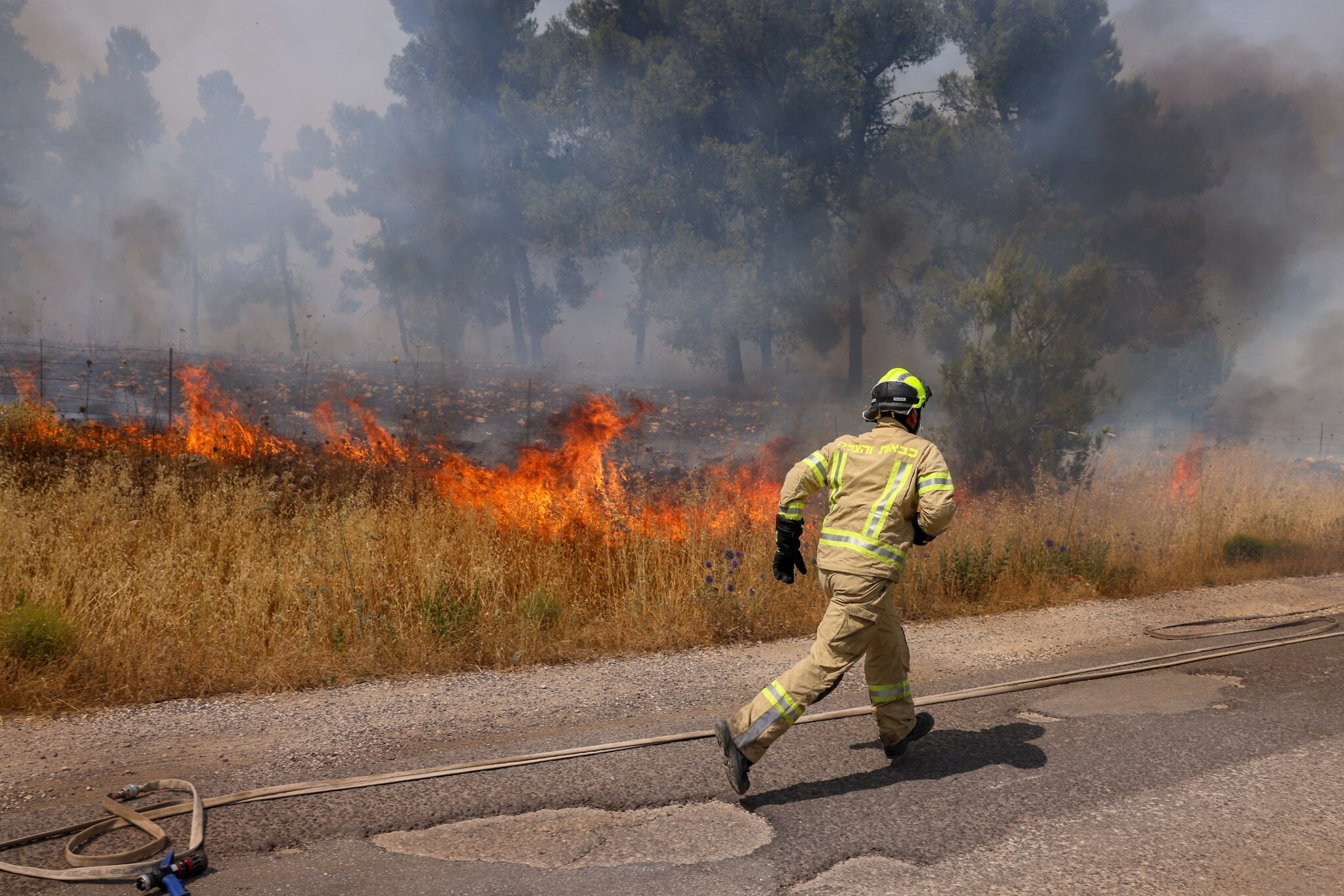
Overview
- According to the latest poll by the most respected Palestinian pollster, Dr. Khalil Shikaki, half of Gazans believe that Hamas will win the war and retain control of Gaza after the war. Two thirds support the October 7th attack.
- The Chief of the general staff of the Israel Defense Forces, Herzi Halevi, met with senior Arab generals from moderate Arab countries, in Bahrain.
- Hamas has rejected the ceasefire proposal agreed to by Israel and pushed by President Biden. They have demand many changes including that in the first week, the IDF withdraws from the entire Philadelphi Corridor and the Rafah crossing, will not release a single hostage before a promise of a permanent ceasefire and a commitment to a full IDF withdrawal from Gaza before agreeing to release the remaining hostages.
- In the deadliest attack since January, eight Israeli troops were killed by a Hamas attack on their armored vehicle in the southern Gazan city of Rafah, near the Tel Sultan refugee camp. The soldiers were part of the Combat Engineering Corps.
- Minister and war cabinet member Benny Gantz announced his resignation from the national unity government due to what he described as the procrastination and politicization of strategic decisions.
- Hezbollah has increased its attacks, firing hundreds of rockets, anti-tank missiles, and mortars targeting a series of Israeli communities along the border.
International
- The US State Department announced that it and its allies are ready to increase pressure on Iran if it does not cooperate with the inspectors of the International Atomic Energy Agency (IAEA). This announcement follows an IAEA report showing that Iran has installed new centrifuges for uranium enrichment at the Fordow nuclear reactor.
- The G7 warned Iran against advancing its nuclear enrichment program. The group’s leaders say they will be ready to enforce new measures if Tehran transfers ballistic missiles to Russia.
- A French regional court ordered the organizers of the “Eurosatory” arms fair, which opened on Monday, to ban not only Israeli companies but also Israeli citizens from participating.
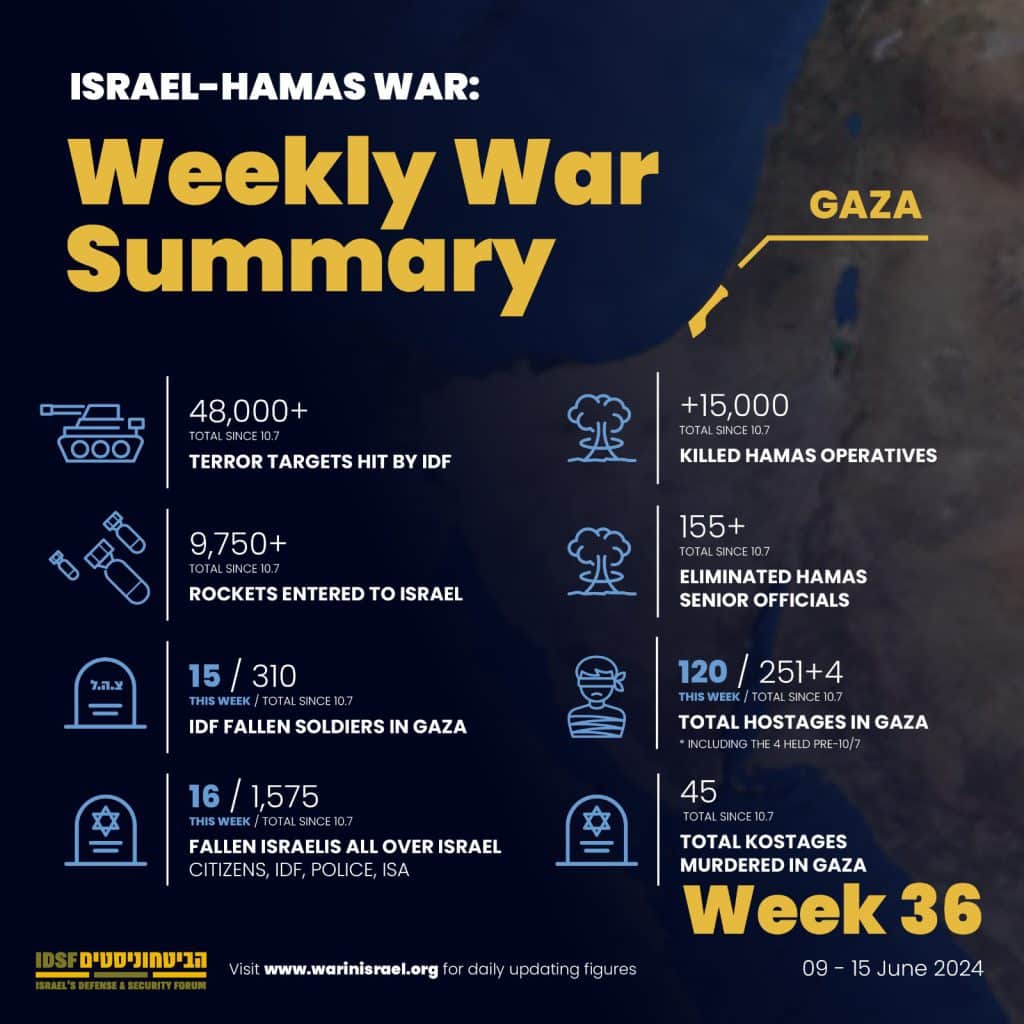
Gaza Strip
Diplomatic
After the US moved closer to Hamas’ position with the latest 3-stage ceasefire proposal that would include an initial 6 week ceasefire which could be extended in the second stage pending successful negotiations. The UN security council unanimously approved the US proposal 14-0. Hamas rejected the proposal but did not want to do so publicly. Instead, Hamas agreed to its own “revised proposal” mimicking the strategy it utilized on a previous agreement which led to increased international pressure on Israel, while minimizing the diplomatic push-back for rejecting an internationally recognized fair deal. It is clear that Hamas believes this strategy will net them a better deal and anticipates that the US will put pressure on Israel accept the conditions that Hamas is demanding
A Wall Street Journal report revealed Hamas leader in Gaza, Yahya Sinwar’s, text messages where he wrote that he has the Israelis right where wants them and that the mounting civilian death tolls benefit Hamas. He expressed his belief that Israel’s allies will ultimately put pressure on Israel to end the war, allowing Hamas to survive and declare victory in the war.
US Secretary of State Antony Blinken arrived in Israel as part of his three-day visit to the Middle East. He said that all Arab states support the current deal, and Hamas is the last to oppose it. Blinken also participated in a summit in Jordan focusing on increasing humanitarian aid to Gaza. The US committed to transferring $400 million in humanitarian aid and pressuring Israel to allow more trucks through the crossings.
In his meeting with Prime Minister Benjamin Netanyahu, National Security Advisor Tzachi Hanegbi, and Minister of Strategic Affairs, Ron Dermer, they also discussed the possibility of the US negotiating a separate deal with Hamas to release eight American hostages (five alive and three dead).
Palestinian Public Opinion Poll
According to the latest poll by the most respected Palestinian pollster, Dr. Khalil Shikaki, half of Gazans believe that Hamas will win the war and retain control of Gaza. Two thirds support the October 7th attack (although that has decreased from 71% support in a poll taken 3 months ago), 80% believe that the attacks have put the Palestinian issue on the world stage. There is an increased support for Hamas, armed resistance, and a decrease in the belief in a two-state solution. The most popular Palestinian figure remains Marwan Barghouti, the imprisoned 64-year-old terrorist who has been convicted of the murder of 5 Israelis and was a leader during the second Intifada.
The PA has no legitimacy– 89% call for President Abbas to resign, 94% in Judea and Samaria and 83% in Gaza. Only 12% approve of Abbas while 89% are dissatisfied with his tenure. 72% of respondents believe that the new PA government headed by Mohammad Mustafa will fail in achieving the reforms that the Shtayyeh government tried to lead.
When asked which party they preferred, 40 % respondents preferred Hamas, 20% preferred Fatah and the rest preferred another party or said they do not support any movement or they are not sure.
Moreover, 90% of Palestinians do not believe that Hamas committed atrocities on October 7th and they are merely Israeli propaganda. Previous polls have indicated that barely any Palestinians have acknowledged viewing the videos of Hamas atrocities from that day.
According to a new poll published by the WSJ, support for Hamas in the West Bank increased from 65% to 71%, as did support among audiences in the West or Arab countries. In the Gaza Strip, it decreased from 52% to 46%, still high, as most of the population, according to the poll, supports the massacre of October 7.
Meeting of IDF Chief with Arab Counterparts in Bahrain
The Chief of the general staff of the Israel Defense Forces, Herzi Halevi, met with Arab generals Bahrain, the United Arab Emirates (UAE), Saudi Arabia, Jordan, and Egypt under the auspices of U.S. Central Command. The meeting, which took place in Bahrain was not publicized due to regional political sensitivities. Despite the public statements that are critical of Israel made by officials from these countries, there remains a shared interest in forging a regional security alliance with Israel. The respective governments and military leaders understand that the Islamic Republic of Iran represents the most significant threat to regional security and that cooperation with Israel is in their interest, although there is still a need to avoid acknowledging this cooperation to avoid public opposition. Meanwhile, on June 11, Hamas opened offices for the first time in Baghdad, the capital of Iraq.

The Hamas Hostage Deal
Hamas senior official Osama Hamdan said in an interview with CNN that they do not know how many hostage bodies they have and have refused to provide a list of names of the first hostages to be released in a potential ceasefire deal, to buy more time and keep any potential temporary cease-fire negotiations as long as possible.
Hamas has rejected the ceasefire proposal agreed to by Israel and pushed by President Biden They demanded many changes including that in the first week, the IDF is to withdraw from the entire Philadelphi Corridor and the Rafah crossing, will not release a single hostage before a promise of a permanent ceasefire and the commitment to a full IDF withdrawal from Gaza before the releasing the remaining hostages. In other words, Hamas wants to allow itself to rearm through tunnels that lead to Egypt that have not yet been destroyed. Thus, the weeks of ceasefire will be an opportunity for them to prepare for the next round of fighting.
Hamas also demands that Israel could not veto security prisoners that Hamas demands to be released, seeking Marwan Barghouti’s release (his release would make him a hero in the eyes of Fatah members and the Palestinian leader). Moreover, Hamas demands that beyond the US-Qatar-Egypt, which are guarantors of any ceasefire, China-Russia-Turkey should also be guarantors, which appears to indicate that Hamas wants to move their offices in case they are expelled from Qatar to one of these countries.
According to the Institute for the Study of War, Hamas is preparing for guerrilla warfare once a cease-fire is finalized. Sinwar believes time is on his side, and the initial withdrawal from the Philadelphi Corridor indicates he will use the time to smuggle weapons and militants from the Sinai Peninsula, smuggle out hostages and Hamas leaders, and strengthen his position for the rebellion phase. Under the current conditions, the IDF should use the time to dismantle all tunnels so that Hamas and other terrorist organizations cannot rearm, leading them to significantly weaken over time. Hamas’s demands, will allow them to strengthen. Israel cannot agree to these terms and must ensure that the IDF retains control over the Philadelphi Corridor, weakening Hamas until a decisive resolution to the war which will likely last throughout 2024.
Operational
- The returned hostages described the torture (physical and psychological) that they went through in interviews with media. For six months, they lived in a dark room, sleeping on small mattresses on the floor. Their only connection to the outside world came from guards who brought them food and occasionally abused them.
- After the successful hostage rescue operation last Saturday, Hamas ordered its militants to execute any hostage if they see IDF soldiers nearby.
- According to the New York Times, Sinwar was hiding in Rafah during the hostage rescue operation in Khan Younis and has subsequently returned to Khan Younis where he is hiding in a network of tunnels that Israel has you locte.
- Eight Israeli troops were killed by a Hamas attack on their armored vehicle in the southern Gazan city of Rafah, near the Tel Sultan refugee camp. The soldiers were part of the Combat Engineering Corps. Their vehicle had explosive munitions that were ignited once the explosion tore through the vehicle. This is the third worst single mass casualty incident suffered by the IDF in the 8 months war. One of the first casualties that was publicized, was Druze captain Waseem Mahmoud.
- 4 Givati troops were killed when entering a five-story building that was booby-trapped and was activated remotely by Hamas.
- The Air Defense Array established a new battalion (Battalion 139) to operate additional Iron Dome batteries (meaning the array will be reinforced).
- During the IDF scans of the battlefield, passages between the walls of adjacent houses were found allowing fighters to move between the houses undetected while using the residents of all the homes as human shields. This is a known urban guerrilla tactic, and was utilized in Jabalya in the north, allowing militants to efficiently move between houses to avoid UAVs, attack helicopters, or tanks in the area and shift the attack to another urban residential area.
- There are reports of the IDF exhuming dozens of bodies from cemeteries in Rafah and transferring them to Israel for examination. Hamas has been known to hide the bodies of the hostages wherever possible, and the IDF is committed to finding them all.
- With or without a ceasefire, according to reports, Division 162 will complete its mission in the Rafah area within about two weeks. From there, it will be necessary to decide on the next objective, whether to stay in place or to spread out along the Philadelphi Corridor and, in cooperation with Egypt, thoroughly destroy the tunnels under the Philadelphi Route (Egypt has expressed a readiness for such cooperation only after a ceasefire) and, after such deployment, transfer part of the force to the north to continue the operations to eradicate terrorism.
- To destroy Hamas and rescue the hostages and protect civilians without an agreement, it will be necessary to relocate the population to the north and south, away from the likely battlefields to allow maneuvering to the center and continuous activity within the population. This will require completing the construction of the Nezarim Route and registering the population that has returned to the north to enable the search for terrorists and collaborators, and allowing for an effective governing plan for the civilian life in Gaza, once Hamas is destroyed.
- The US pier that operated from June 7 to 14, transferred 2,500 tons of food and humanitarian aid. Due to rough seas, it was unloaded and temporarily transferred to the port of Ashdod, which will necessitate additional trucks that will need to enter Gaza through the crossings that are already congested.
- The US is pressing Egypt to transfer about 1,000 trucks through the Rafah crossing during the next week despite its opposition to Israeli control of the Philadelphi Route and the demand for IDF withdrawal from the Rafah area before transferring humanitarian aid.
- Division 99 completed an operation led by the multi-dimensional unit, Brigade 679, and the Carmeli Brigade last week, killing dozens of militants and destroying 50 terrorist infrastructures in the Sabra and Zeitoun neighborhoods. There are now four brigades along the Nezarim Corridor. The successful operation also led to the destruction of a tunnel about a kilometer from the border with the Gaza envelope. The tunnel was 800 meters long and 30 meters deep in the Juhor al-Dik area.
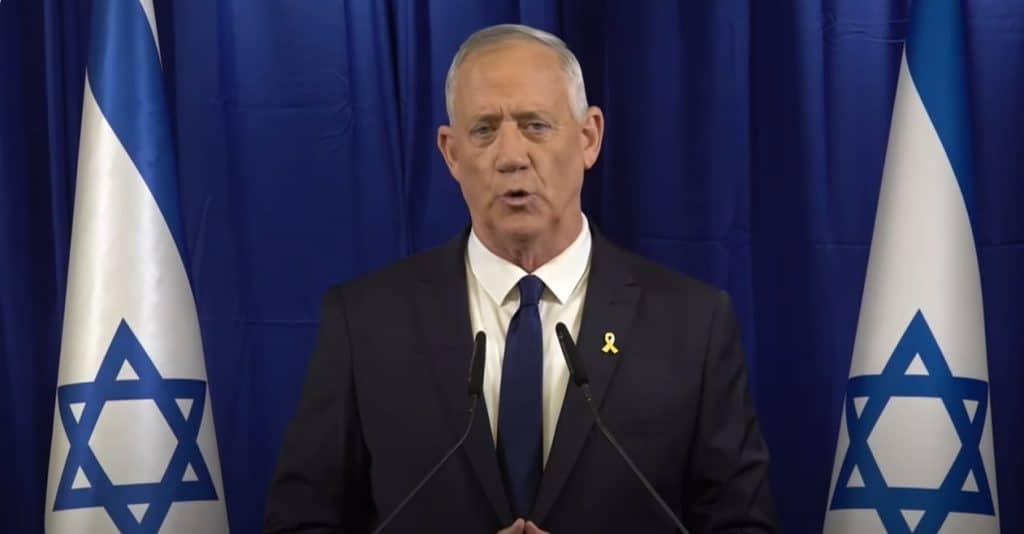
Domestic Arena
Ultra Orthodox Draft Bill
The IDF decided to establish an ultra-Orthodox fighting brigade of 3,000 fighters. After selection, only ultra-Orthodox men (not national-religious) will be recruited into this brigade. This caused a stir within the ultra-Orthodox community as historically, ultra-orthodox men were entitled to an exemption. The issue of drafting the ultra-Orthodox into the IDF is one of the most contentious questions in Israeli society.
The Israeli government is pushing a bill that would lower the age of exemption from mandatory service for ultra-Orthodox men from 26 to 21. The bill had originally been put forward by the previous government but is now being opposed by the opposition (the then government that pushed the bill) as it claims that the bill is no longer sufficient to address the needs of the IDF in a post October 7 environment, and more ultra-Orthodox men are needed in the IDF.
In the vote that took place at around 3:00am-Tuesday morning Gallant was the only one of the 64 coalition members to vote against the bill.
The needs of the IDF have significantly increased, as the number of reservists that IDF requires has been raised from 300,000 to 350,000; the duration of reserve service and frequency of recruitment have been extended; and the discharge age from reserves has been raised. Since October 7 and the start of the war, Israel has suffered 650 casualties (298 in the Gaza operations) and about 3,800 wounded soldiers (1,900 in Gaza), which has led to a decrease in available able-bodied manpower. With the transition to a long-term military presence in Gaza, the magnitude of forces will change. There will more brigades needed for Nezarim Route security, Philadelphi Corridor security, and repeated operations within the strip will be needed. There will also be a need to strengthen the battalions in the Judea and Samaria for routine security and counter-terrorism missions, strengthening defense on the northern front, and the air defense systems which will require higher enlistments.
Gantz Leaving the Government
Minister and war cabinet member Benny Gantz announced his resignation from the national unity government due to what he described as the procrastination and politicization of strategic decisions.. He called on Defense Minister Gallant to resign as well. From his remarks, it can be understood that the main disagreement behind the scenes was over the political plan for Gaza, normalization with Saudi Arabia, and the conscription law. Netanyahu called on him to reconsider and said this is a time for unity.
A new wave of much larger political protests are expected to launch this week following the departure of Gantz and the passage of the Ultra-Orthodox draft bill.
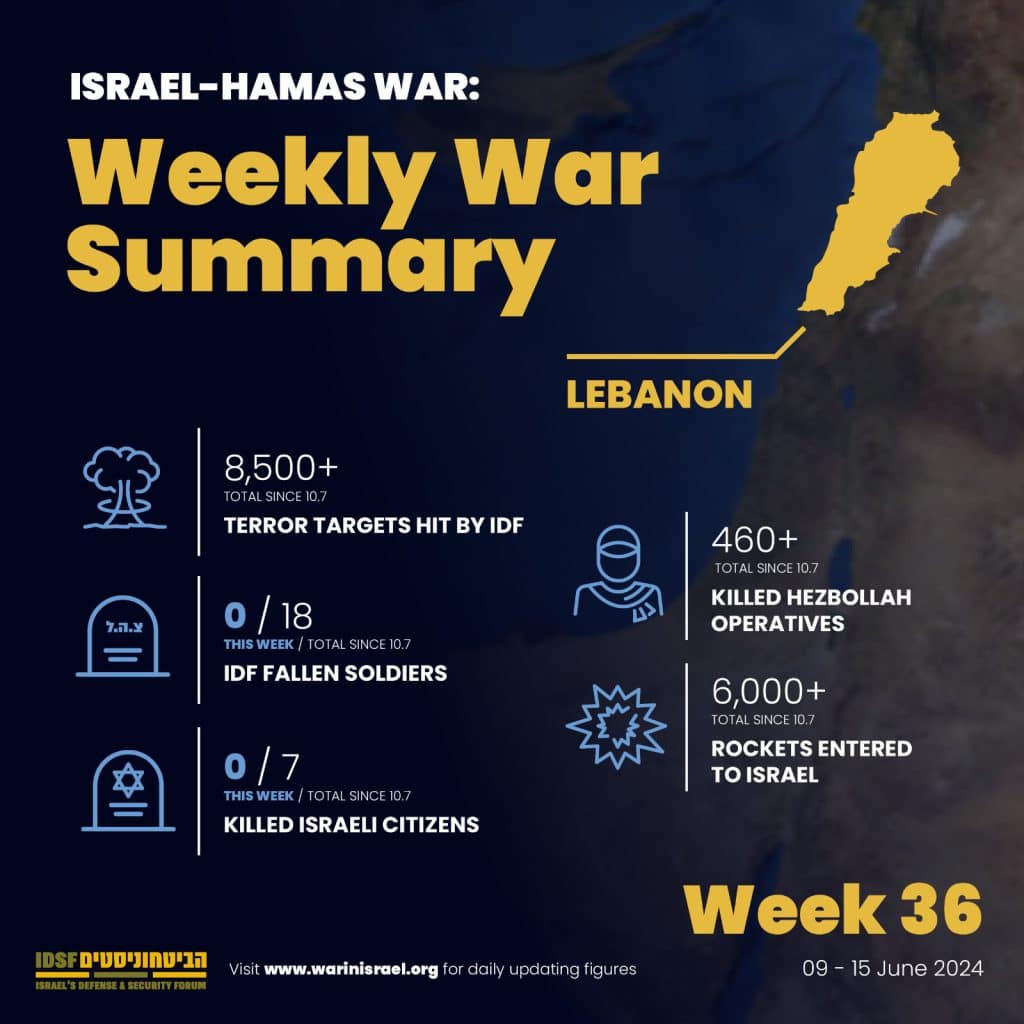
Lebanon
Operational
On the northern front, Hezbollah has increased its velocity of attacks, firing hundreds of rockets, anti-tank missiles, and mortars targeting many residential communities along the border. 35 rockets were fired at Kiryat Shmona, and other towns in the north causing significant damage and fires.
- On Friday afternoon, the IDF Spokesperson announced that in the previous 72 hours, Hezbollah had fired 16 UAVs, of which the air defense array intercepted 11.
- Hezbollah released a video of a hit on the “Plasan Sasa” factory in the Upper Galilee, which manufactures military vehicles (this strike was an operational and propaganda achievement for them).
- The IDF built a medieval-style trebuchet to launch incendiaries at Lebanon, to set fires on the other side of the border in order to burn fields and groves on the Lebanese side of the border to expose Hezbollah militants.
- Hezbollah senior commander, Taleb Abdullah, also known as Abu Taleb, was killed in an airstrike in southern Lebanon. He is the most senior Hezbollah commander to have been eliminated since the start of the war. He was responsible for commanding the central region of the southern border strip.
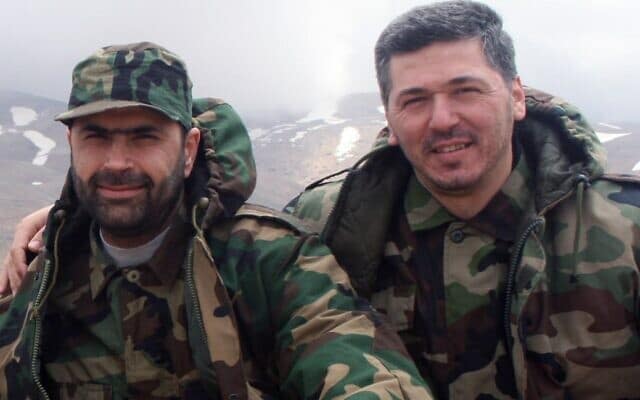
Diplomatic
Defense Minister Yoav Gallant spoke by phone with US Defense Secretary Austin after he met with the Lebanese Chief of Staff who came to visit the Pentagon. The US is trying to reach an agreement and prevent any possibility of war expanding into Lebanon, for fear that it will escalate into a full-scale war with Iran’s proxies and Iran itself in the Middle East.
France is also trying to mediate an agreement. French President Macron called during the G7 summit in Italy for the establishment of a French-American-Israeli team to reach a new agreement with Lebanon. Gallant condemned Macron for standing against Israel throughout the war and preventing Israeli defense industries and Israeli individuals from entering the upcoming defense conference in Paris.
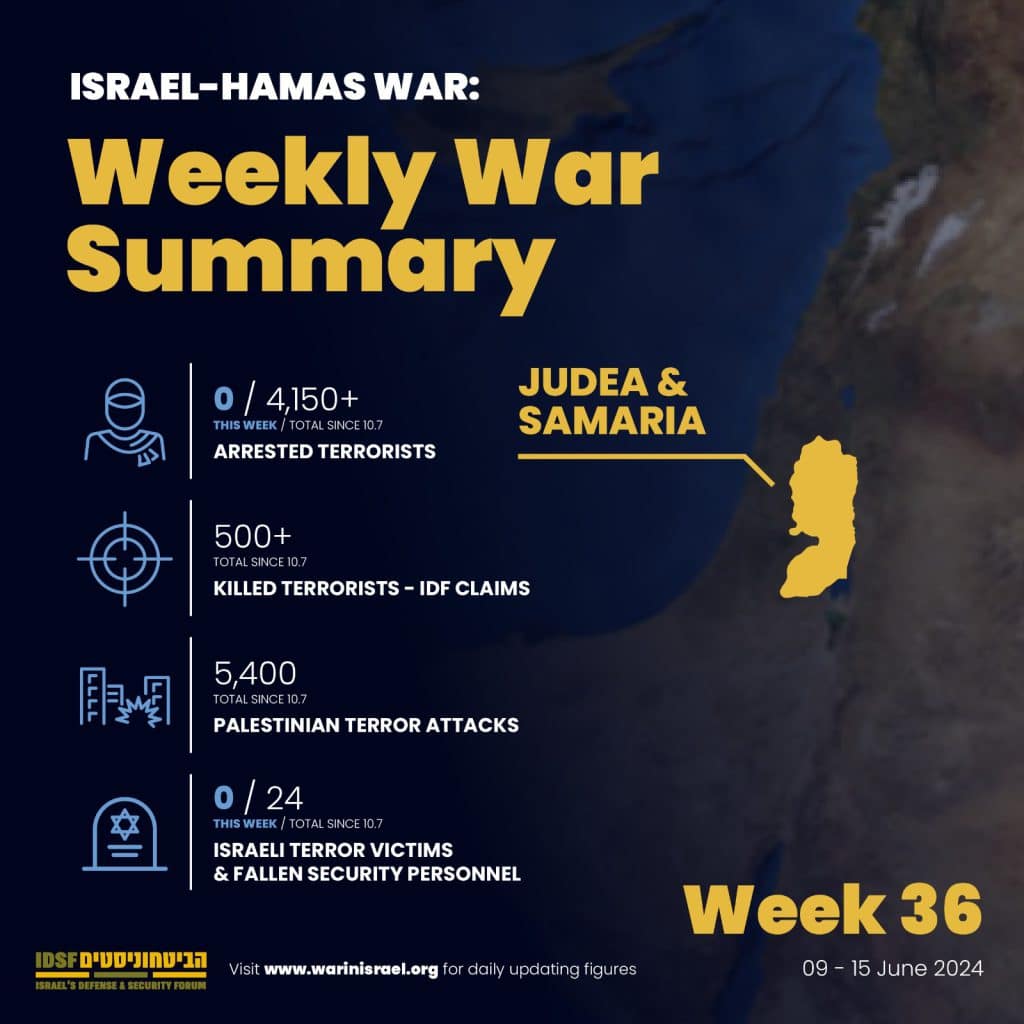
Judea and Samaria
- The IDF launched a counter terrorism operation in the city of Qabatiya and killed two senior terrorists belonging to Islamic Jihad’s Katibat Jenin branch. The two were identified as Muhammed Shalabi and Muhammed Fayyad who were members of the military council of the Jenin Brigade.
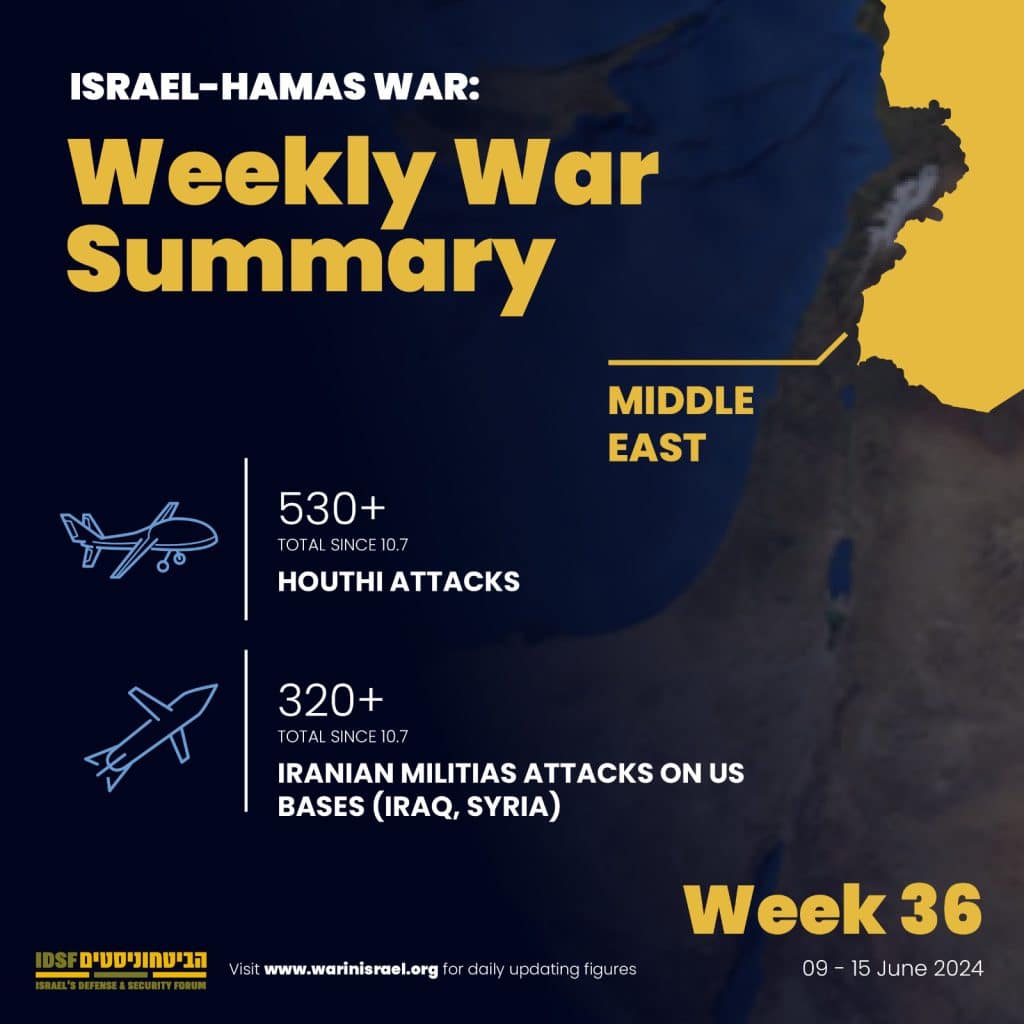
Global Jihad
- Al-Qaeda Calls Foreign Fighters to Migrate to Afghanistan Following Gaza War. The current leader of Al-Qaeda, Saif al-Adl, is using the war in Gaza as a catalyst to promote global jihad encouraging Muslims to come to Afghanistan to gain training and knowledge before carrying out terror attacks against targets of “infidels”: Jews and Christians, and Western targets around the world. Al-Adl also praises those “sleeper cells” in Western countries, as they act as a “deterrent force” against further Western “crimes.”
- It has been reported that US intelligence estimates that the Houthis are holding talks about supplying weapons to the Al-Shabaab organization in Somalia, Al-Qaeda’s branch in the Horn of Africa. The report examines whether weapons have already been transferred and if Iran is involved in the negotiations between the parties.
Yemen
- The Houthis claim to have hit two ships in the Red Sea and Gulf of Aden. The US Central Command intercepted three ballistic missiles targeting ships launched by them.
- They successfully attacked a ship in the Red Sea en route to the Indian Ocean. The attack was a combination of UAVs, USVs, and anti-ship missiles. Since November, they have successfully hit 77 civilian ships. The US Central Command, responsible for freedom of navigation, has so far spent an estimated one billion dollars defending against the Houthis, with 200 different interceptions (mainly UAVs or cruise missiles) and have attacked 450 targets in northern Yemen.
- Houthi activity has caused a 67% drop in container ship traffic and a 50% drop in fuel tanker traffic in the Red Sea.
Fallen Soldiers:
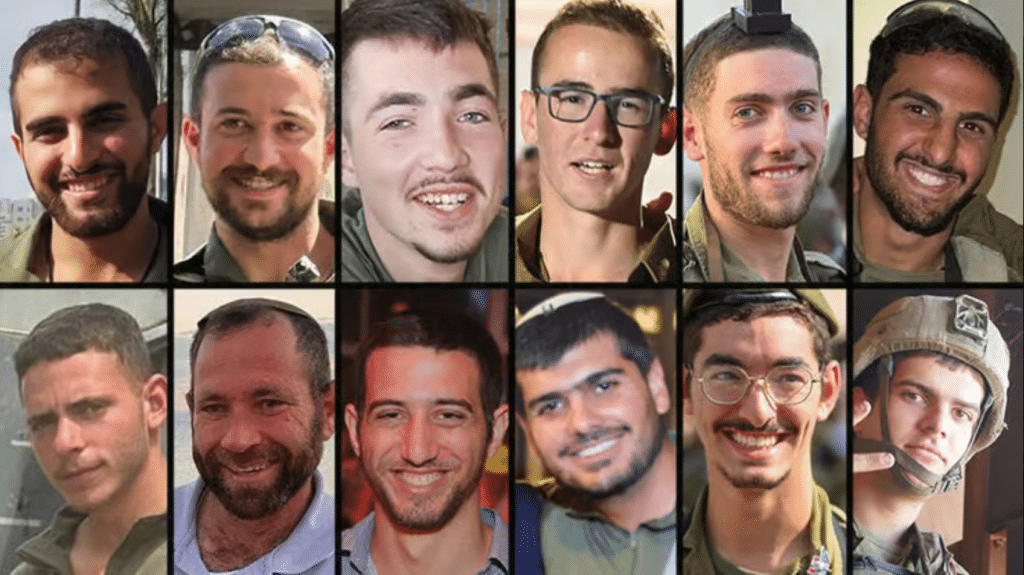
12 IDF fallen soldiers within 2 days. From the top left corner, clockwise: Avraham Tzur, Wasim Mahmoud, Az Yeshaia Gruber, Or Blomovitz, Eliyahu Moshe Tsimbalist, Itay Amar, Stanislav Kostrev, Shalom Menachem, Yakir Yaakov Levy, Eitan Koplovitz, Elon Weiss, and Yair Roitman. | Source: IDF Spokesperson
This week Israel lost many soldiers, including 11 within 24 hours. Below are the names that were published:
- Sergeant Yair Levin z”l
- Sergeant Almog Shalom z”l
- Staff sergeant Eitan Karlsbrun z”l
- Major Tal Pshebilski Shaulov z”l
- Captain Wassem Mahmoud z”l
- Sergeant Yair Roitman z”l
- Captain Eitan Koplovich z”l
- Senior Staff Sergeant Major Elon Waiss z”l
- Sergeant Elyahu Moshe Zimbalist z”l
- Sergeant Itay Amar z”l
- Staff sergeant Stanislav Kostarev z”l
- Staff sergeant Orr Blumovitz z”l
- Staff sergeant Oz Yeshaia Gruber z”l
- Sergeant Yakir Ya’akov Levi z”l
